Incorporating climate change measures into management strategies to become a Group that drives a decarbonized society
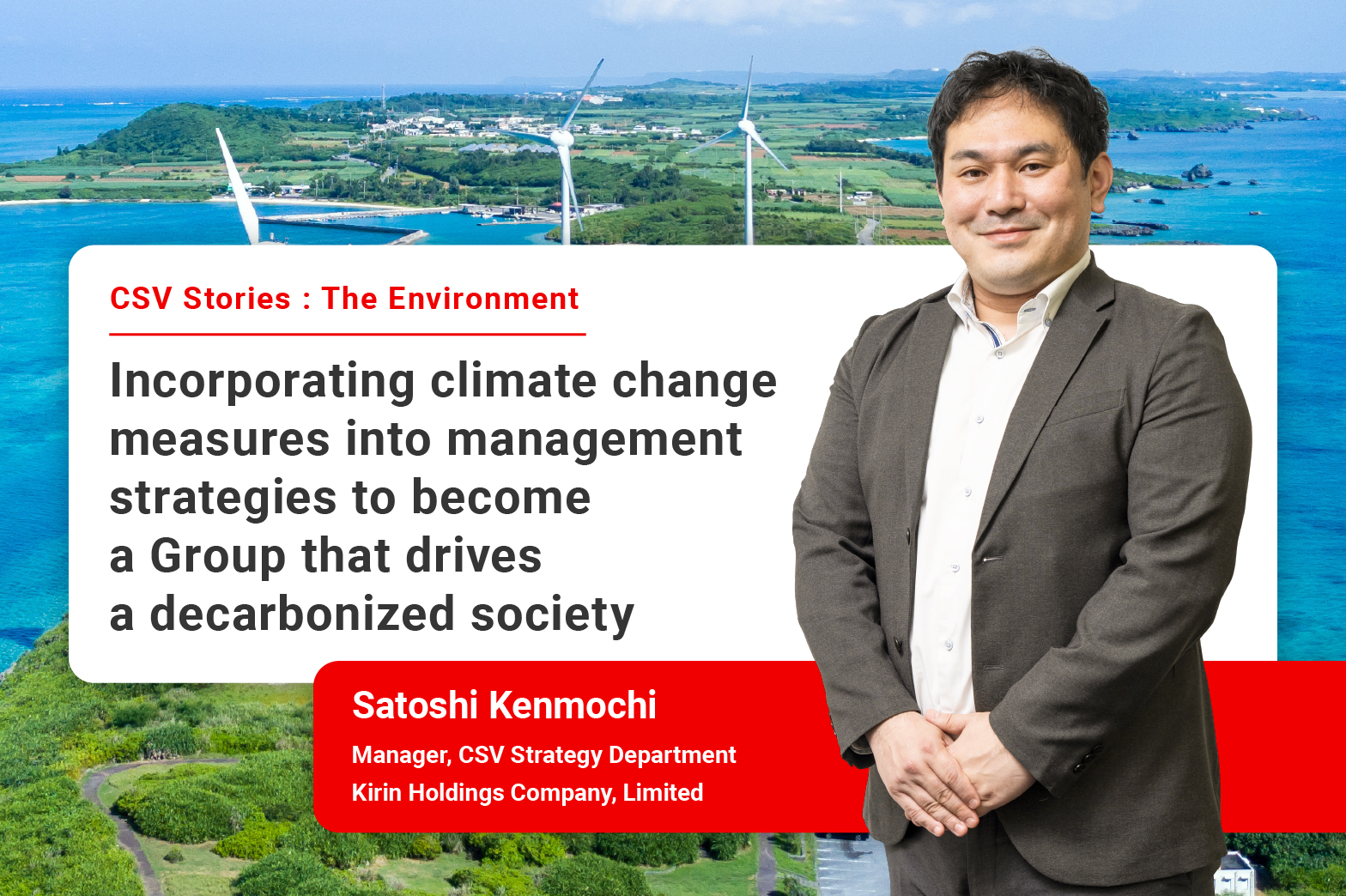
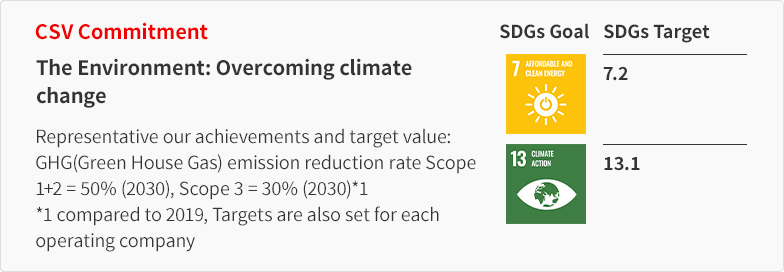
Under the Kirin Group Environmental Vision 2050, we aim to create a sustainable global environment for future generations through our business activities. One of our priority issues is addressing climate change. The company has set the goal of "reducing greenhouse gas (GHG) emissions throughout the value chain to net zero by 2050" and the medium-term goal of "reducing Scope 1 and Scope 2 emissions by 50% in total and by 30% in Scope 3 by 2030 compared to 2019." It has been endorsed by the international Science Based Targets (SBT) as a science-based reduction target to limit the global temperature increase from pre-industrial levels to less than 1.5°C.
Steadily implementing measures in the roadmap to reduce GHG emissions and enhancing the sustainability of our businesses and society
Agricultural products are expected to suffer great damage if climate change causes extreme droughts or floods. Climate change action is a priority for the Kirin Group, as its alcoholic and non-alcoholic beverage businesses rely on water, agricultural products, and other blessings of nature. Our strategy is (1) to lead a decarbonized society in combating climate change and (2) to prioritize measures that combine social and economic value. Our long-term goal is to achieve a state in which the sustainability of our business is enhanced by climate change action.
Achieving the goal will require a substantial funds, including large capital investments and the introduction of renewable energy. The Kirin Group will early implement energy saving measures that are highly cost-effective and introduce renewable energy using the energy cost reduction benefits as a source of funds, aiming to achieve medium- to long-term profit and loss neutrality regarding climate change measures for the Group as a whole.
We have established a roadmap for GHG reduction to achieve our goal by 2030. This plan is incorporated into the management strategies of each operating company and incorporated into a new Medium-Term Business Plan starting in 2022. Since 2019, Kirin Brewery and Kirin Beverage plants have installed heat pump systems and developed energy saving measures, resulting in a reduction of about 140 million yen in energy costs and about 4,700 tons of GHG emissions in a year.
Recently, the calls for companies to take action on climate change have grown consistently louder. In Japan, the introduction of carbon pricing is being considered as a mechanism to share costs based on CO2 emissions. Under these circumstances, the Kirin Group aims to reduce GHG emissions by steadily implementing the measures in its roadmap and to increase corporate value by introducing Internal Carbon Pricing (ICP) as an investment decision criterion to reduce the risk of profit decline associated with the introduction of carbon pricing.
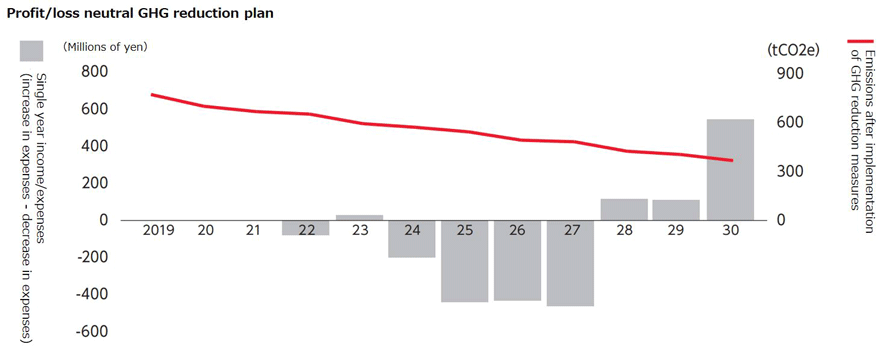
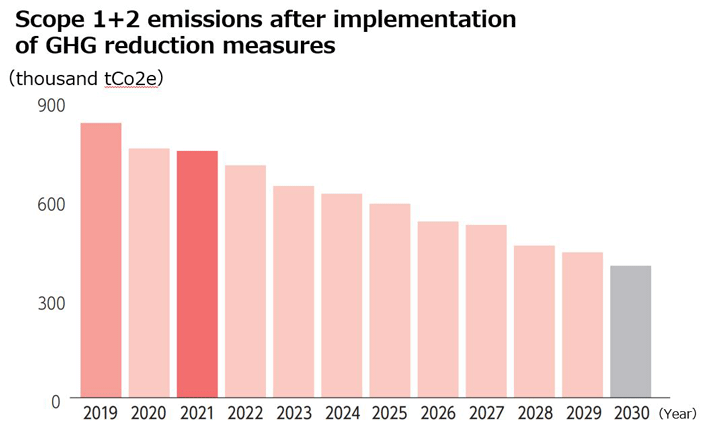
Promoting a shift to responsible renewable energy
The Kirin Group has stated "Achieve RE100 at an early stage and source the company's energy from 100% renewable energy" in the Environmental Vision 2050. In response, we have formulated a Group policy for the introduction of renewable energy in 2021, and will essentially contribute to the decarbonisation of society by adding new renewable energy sources to the world. We will also procure “responsible renewable energy” without risks such as environmental destruction and human rights violations.
*An international environmental initiative to convert 100% of electricity used to renewable energy
To date, large-scale solar power generation has been installed at all nine Kirin Brewery plants, reducing both GHG emissions by approximately 11,000 tons per year while also reducing energy costs. The Ministry of Economy, Trade and Industry (METI) has called for the expansion of offshore wind power generation projects in its Sixth Basic Energy Plan and others, and the Kirin Group has participated in the Offshore Wind Power Generation Projects off the coast of Akita Prefecture and Chiba Prefecture as a partner company in a consortium formed by the Mitsubishi Corporation Group. We will promote collaboration while leveraging our knowledge of community contribution cultivated through reconstruction assistance in Tohoku and other activities.
Promoting sustainable procurement by strengthening partnerships with suppliers
The reduction of Scope 3 emissions is an important and challenging issue in achieving the long-term goal of net zero carbon. Approximately 80% of the Kirin Group's value chain GHG emissions are in Scope 3, and reducing these emissions requires the cooperation of many stakeholders outside the Kirin Group. It is also an opportunity to create economic and social value for both the Kirin Group and its stakeholders and to take a leadership role in building a decarbonized society.
In the Kirin Group's Scope 3, emissions from the production of raw and other materials are the largest, accounting for about 60%. Since emissions from transport and sales also account for a large proportion of our emissions, we have designated these three categories as priorities and are promoting initiatives in these categories. We will take two approaches to Scope 3 reductions in parallel to achieve our goals: reductions by our own initiatives and promotion of reductions by our business partners.
For reductions by our own initiatives, we will focus on engagement with suppliers. We have already held a briefing session to share the Kirin Group's policy, and are currently conducting a questionnaire survey of major suppliers to confirm each company's reduction plan and quantitative and qualitative progress. In the future, we will consider initiatives to procure low-carbon raw and other materials based on the data we have been able to ascertain. Regular communication on the topic of climate change will also be conducted.
Since Scope 3 reduction is an issue not only for the Kirin Group but also for society as a whole, we would like to share the issue with other companies in our industry and various industry organizations, and clarify areas where we can work together to promote progress in its resolution. To ensure that reduction efforts are correctly reflected in the calculation of Scope 3 emissions, we will modify the calculation database and consider using external platforms to collect accurate data.
For reductions by our own initiatives, we are focusing on containers and packaging as a key theme. We will reduce GHG emissions associated with the production of raw and other materials by promoting the weight reduction of containers and packaging by taking advantage of our world-class in-house research laboratory that develops containers and packaging, and by expanding the use of sustainable containers and packaging made from materials recycled from used containers. In transport, we will promote integrated and optimal operation of production and logistics, taking into account the risk of an inability to make deliveries due to a shortage of truck drivers and related factors. We will also continue joint delivery and modal shifts.
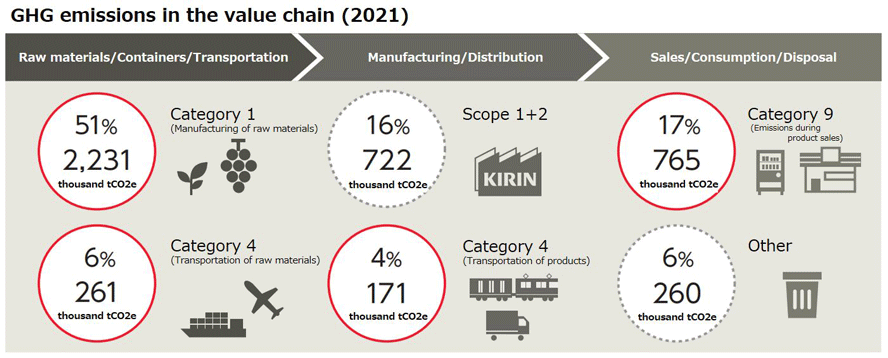
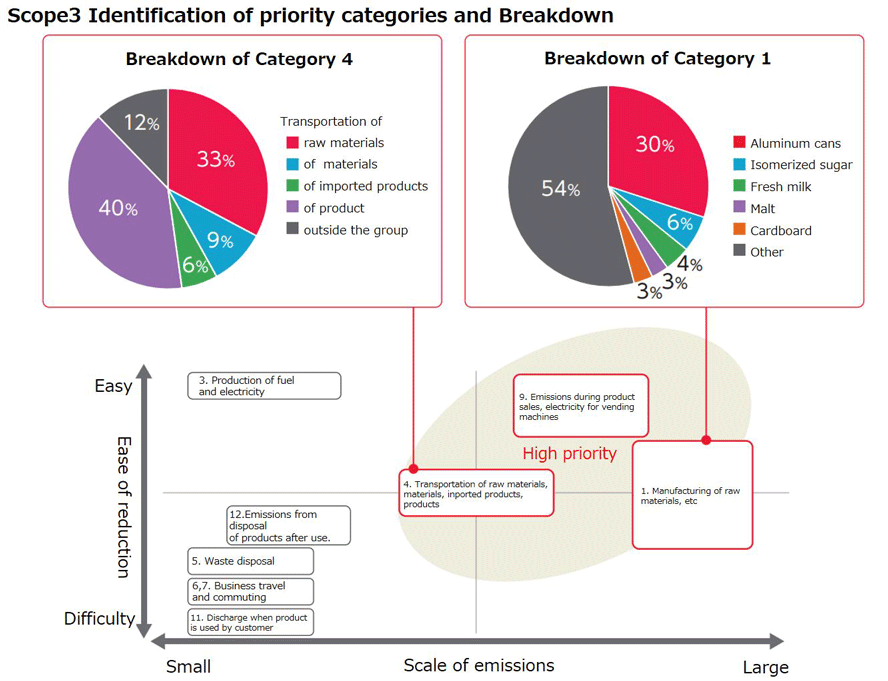
Satoshi Kenmochi
Since joining the company, he has been in charge of facility improvement and energy conservation promotion at Kirin Brewery and Kirin Beverage factories and the head office.Since 2020, he has been in charge of formulating and promoting strategies for climate change measures for the entire Kirin Group.
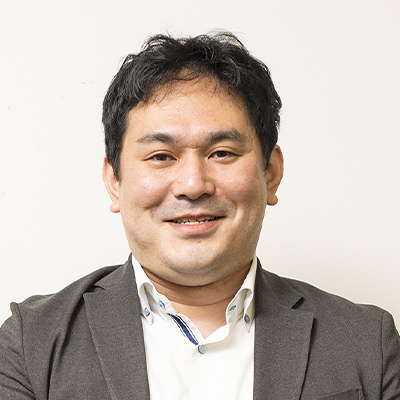
*Stated information as at the date it is made